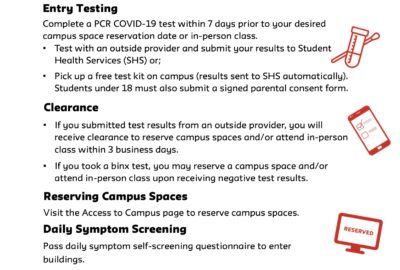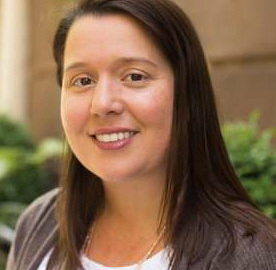Sarah Fajardo (MS ’13) serves as the Policy Director for the ACLU-NJ. She has worked with Asian American and immigrant-led organizations to improve language access and has analyzed the fiscal impact of budget bills on the NYC Department of Education. Today, Sarah is working on national, state, and local campaigns with the ACLU-NJ in an integrative model that relies heavily on policy analysis, grassroots organizing, legal analysis, and litigation.
We recently had the opportunity to speak with Sarah about her Milano experience and the work she is doing now.
What made you choose Milano?
I was interested in the project-based learning model and was really curious about the opportunity to work with various New York City organizations to get hands on policy experience. I appreciated Milano’s focus on urban policy analysis, as I’ve lived in cities for most of my adult life and intend to continue working primarily in urban spaces. I met interesting people at some of the accepted students’ events who encouraged me to come too.
What part of the Milano experience has helped you most in life?
I connected with some amazing people at Milano and through the Milano alumni network, and I had an opportunity to design a final policy project that let me work with an organization that I’d wanted to work with for years. It connected me to ideas, skills, people, and organizations.
I fall back on the learnings from our policy analysis intro class all the time when thinking about the impact of a policy decision, and I think a lot about unintended consequences of systems change. I had a few great experiences in the international affairs and the nonprofit management departments as well that helped expand the ways that I approach community engagement, serving on the management team at a nonprofit, and contextualizing local and state policy within the greater global framework.
What matters to you most?
Accountability and racial and social justice in political work. Policy change can be so technical and systems-based but it can have deep impacts on all of our day to day lives. Making sure that policy changes are made by and with people who are going to be impacted is critical. And understanding how societal positioning, power, and privilege tie into how systems are built helps me deconstruct racist and unjust systems.
What’s the most surprising thing you’ve encountered working in the policy field?
I was surprised by the many different types of policy work that exist! So far I’ve worked with Asian American and immigrant-led organizations to improve language access in NYC; analyzed the fiscal impact of budget bills on the NYC Department of Education and tracked the billions of state dollars funding NYC’s schools; done policy research, coalition building and report writing; and now I’m working on national, state and local campaigns with the ACLU-NJ in an integrative model that relies heavily on policy analysis, grassroots organizing, legal analysis, and litigation. Policy work is as diverse as the systems and processes that societies have built.
Why do you go to work every day?
I go to work every day to try and advance and defend the civil rights of New Jerseyans. From criminal justice reform, to protecting and advancing immigrants’ rights, to making sure voters are able to vote in state and local elections, and many, many more issues, our rights have to be defended and advanced. It’s a privilege to get to go to work every day and try and help New Jersey advance towards that goal.
What do you want to do next?
I want to help pass legislation to legalize marijuana in the state of New Jersey and separately to help pass a bill that provides opportunities for all drivers to get licenses, no matter what a person’s immigration status is. More broadly, I’m excited to build our organizing and policy program at ACLU-NJ with the help of my talented colleagues.
Where do you find inspiration when you need it most?
Connecting with grassroots organizers grounds my work, keeps my work accountable to people that it impacts, and helps me understand what community members envision for our collective futures. I work with some grassroots organizers in my current role, and I also serve on the board of a grassroots organizing non-profit called CAAAV- Organizing Asian Americans. CAAAV does incredible organizing work with low-income Asian American and refugee community members to make sure their voices are included in decisions that affect their communities. It’s been an honor to serve on CAAAV’s board, to hear from community members and leaders about their priorities and diagnosis of systemic problems, and to deepen my political education through connecting with members of the extended CAAAV community.



